Supermicro SuperWorkstation SYS-551A-T Internal Overview
Getting inside the system is super easy. The side panel pops off using the rear button we showed earlier. Once the side panel pops off, we get to one of the more controversial features: the airflow baffling.
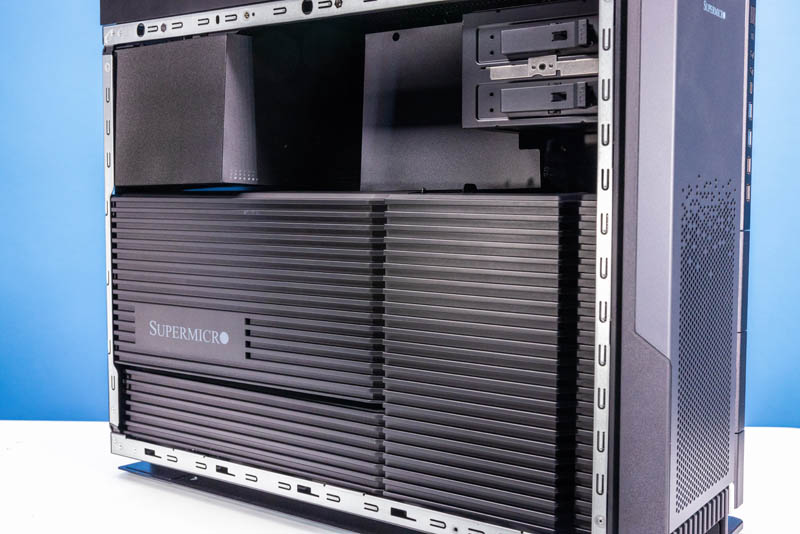
Our team is split 50/50 on those who like and those who do not like this feature. The chassis is so cavernous that having the airflow guide is needed. On the other hand it feels like it is a bit more complex than necessary to install and remove. Looks wise, we will let you be the judge since that is a personal preference.
Once the airflow guide is removed, we can see the magic of this system. we are going to quickly note that there is mounting for four 3.5” drives and two 5.25” bays, but these can be used for 2.5” SSDs as well.
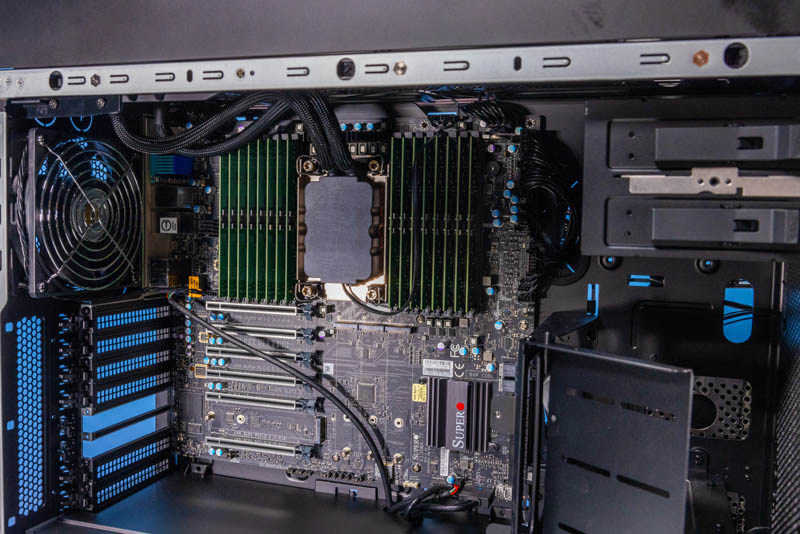
Looking at the massive Supermicro X13SWA-TF motherboard, we can see features that make this workstation unique.
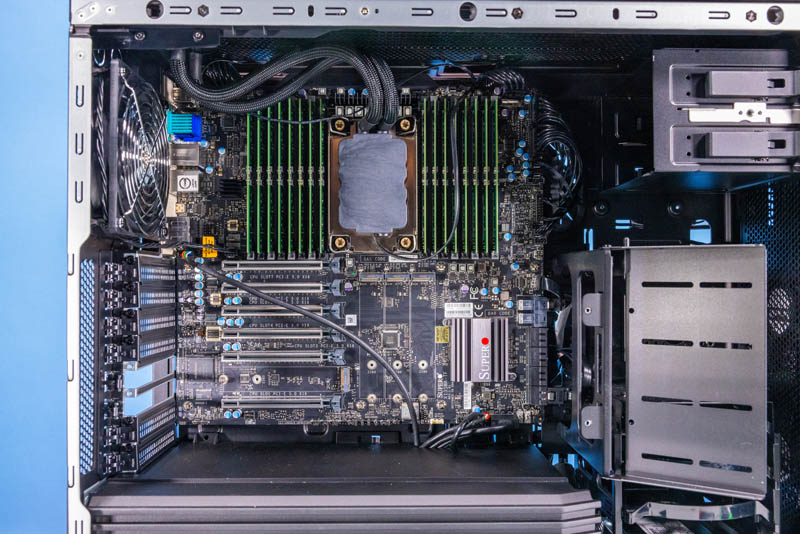
First, Supermicro has its own liquid cooling solution. In the performance section, we will clearly see the impact of liquid cooling the Intel Xeon w9-3495X 56 core part. This solution allows Supermicro to cool a hot CPU that directly translates into more performance from the same CPU.
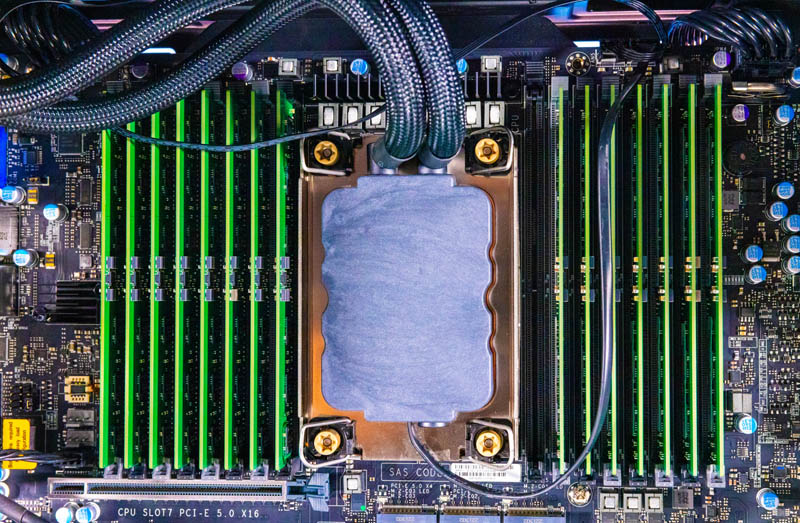
The other unique feature is the memory and memory orientation. In this system, the DDR5 memory is oriented in a vertical manner. This allows Supermicro to fit a full 16 DDR5 DIMM slots in the system. We have looked at several Xeon W-3400 systems already, and Supermicro’s competitors only have half of those slots at only 8 DIMM slots.
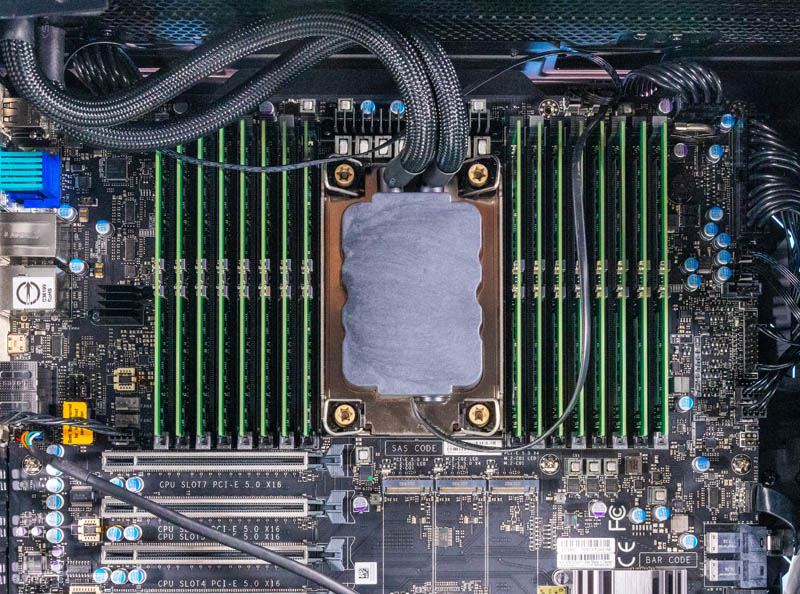
As a result, Supermicro can use lower-capacity DIMMs to hit the same total capacity point, potentially lowering costs, or increasing total memory capacity up to 2TB.
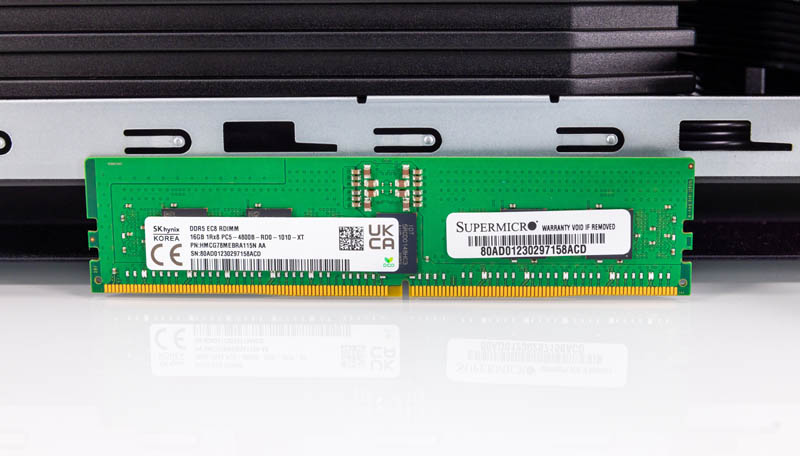
Since our readers may have spotted this, the advantage of what Supermicro is doing with the AQC113 10Gbase-T NIC is that it uses a smaller heat sink that sits between the memory and the rear I/O ports.
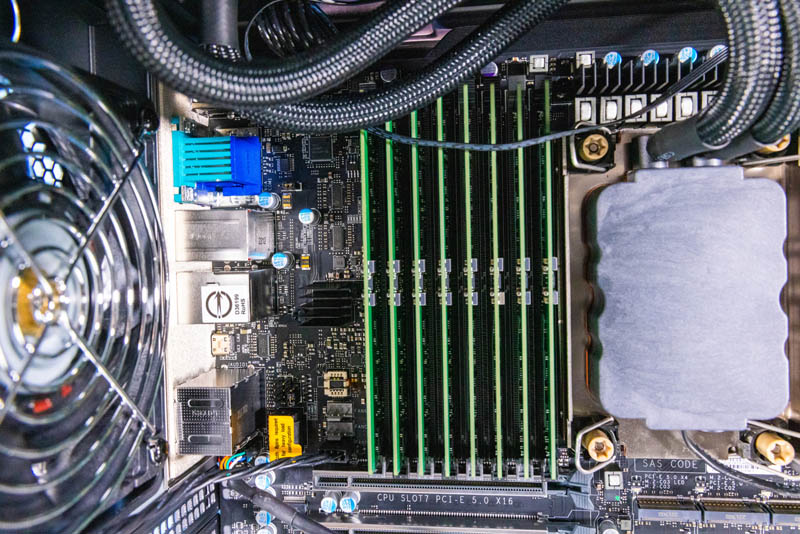
Beneath the giant block of CPU and memory, we get a healthy PCIe I/O subsystem with a neat trick. Here all six slots are PCIe Gen5 x16 slots which is great if you have a lot of devices you want to add.
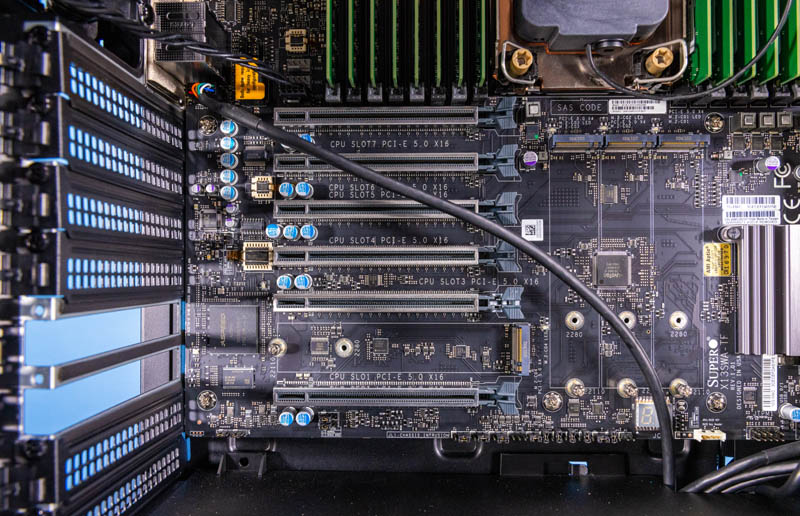
The eyebrow-raising feature is also the M.2 SSD array. There are four onboard M.2 slots. One slot sits between PCIe Gen5 x16 slots, the other three are in an array in the middle of the motherboard. This is great for storage given the popularity of M.2 storage. At the same time, we should point out that if you have large GPUs installed, these slots are going to require removing PCIe cards in order to get access.
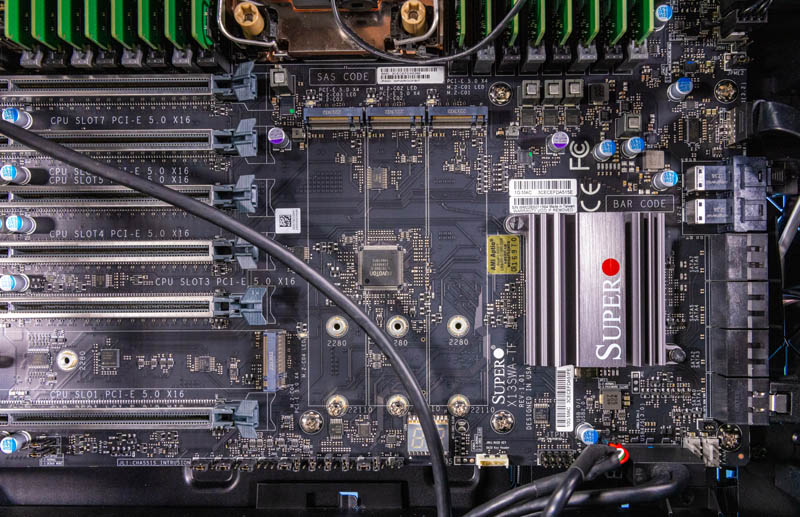
Next to that, we get our W790 chipset with a little Supermicro logo. On the edge of the motherboard, we get eight SATA III ports and two NVMe ports that are PCIe Gen3 x4 all connected to the chipset.
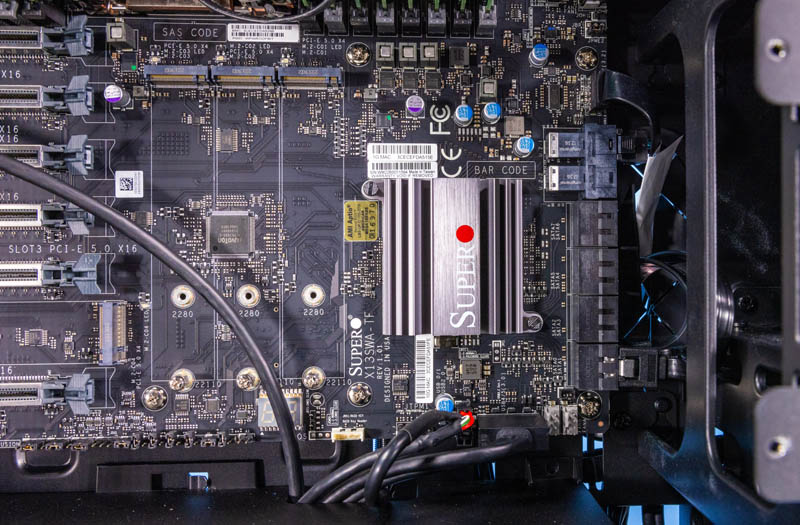
Next, let us get to the block diagram to see how this is all connected.

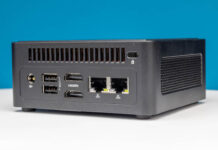
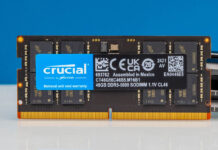
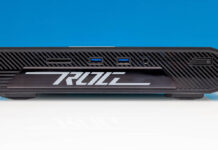
Noise levels? DPC Latencies?
Hi, this cable that crosses PCIe connectors looks very professional ;-)
Tome jsi kojot, nepoznáš PCI express?
@Tom, that’s just where the front panel audio header is located on that motherboard.
https://www.supermicro.com/manuals/motherboard/X13/MNL-2444.pdf
This board does not have correct number of PCIe slots! 7 is correct also by the looks of it you need a 3×00 series cpu to use yop cpu slot! making it useless for a modern gpu as modern gpu will sue up available usable slots on a 2×00 series cpu due to nvidia being unbable to designed gpu clooers that fit in 1 slot